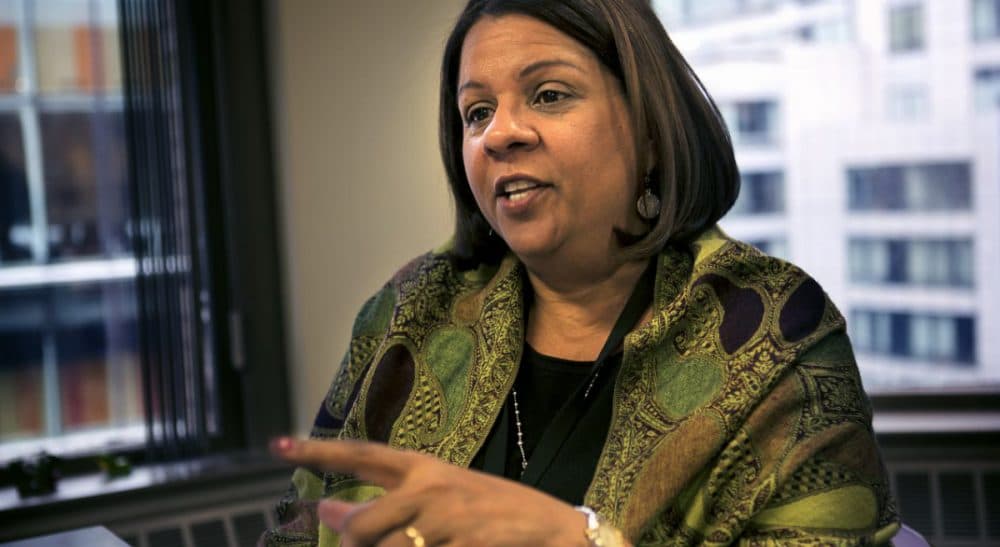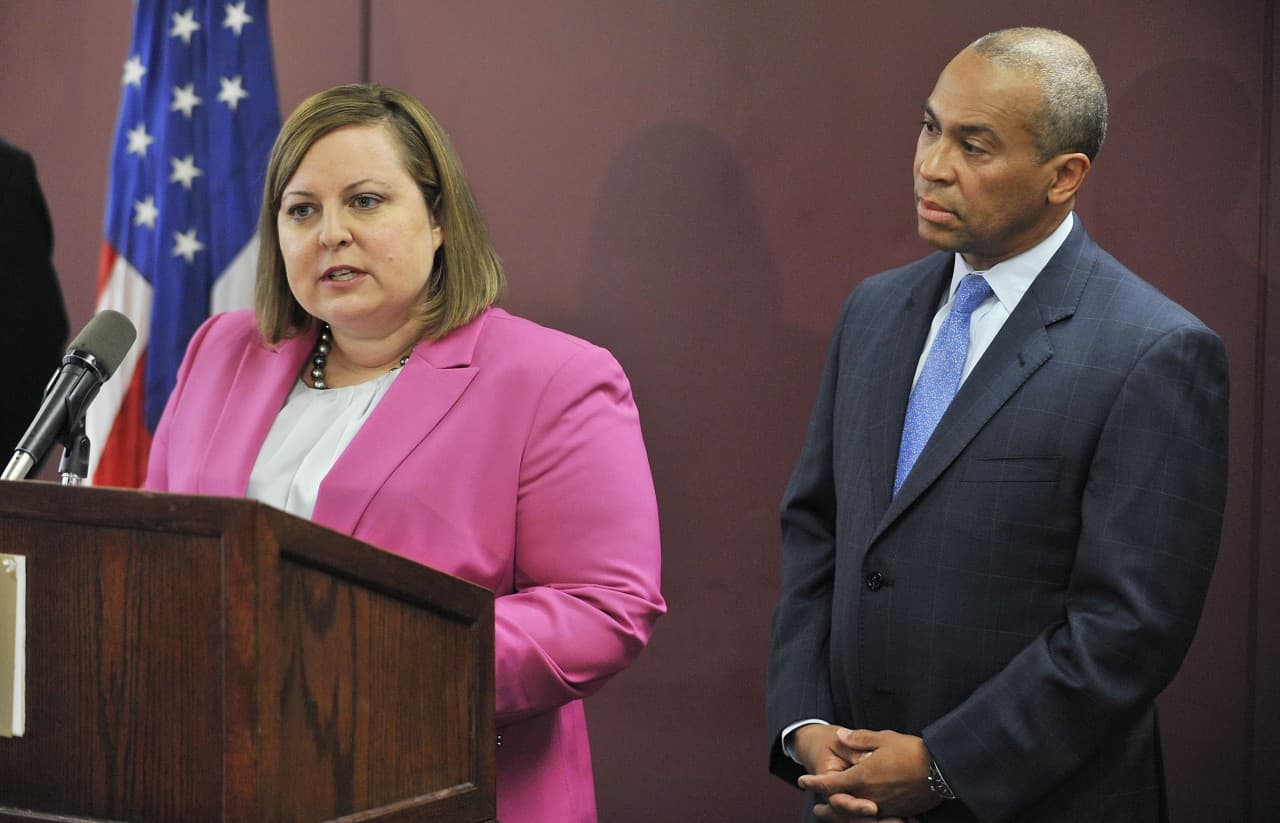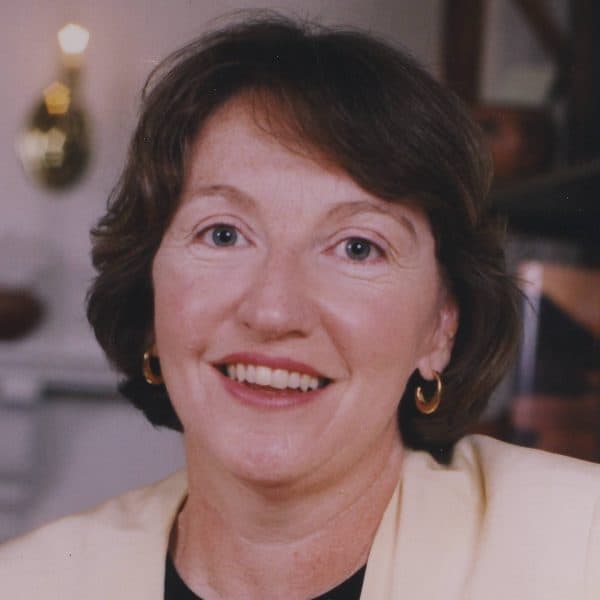Advertisement
DCF's Problems Did Not Begin And Will Not End With Olga Roche

Memo to Gov. Deval Patrick: Protecting the safety of the state’s most vulnerable children is more complicated than renewing the licenses of its drivers.
It is certainly heartening to hear that Erin Deveney, his new head of the state’s child protection agency, had a solid administrative record at the Department of Motor Vehicles. But management skills will not fix the most persistent problem plaguing the Massachusetts Department of Children and Families.
Political and public indifference to at-risk kids is a tougher nut to crack than long lines at the registry.
If there were halcyon days in child protection in Massachusetts, history failed to record them.
DCF Commissioner Olga Roche’s resignation will get the nettlesome press off the governor’s back but it will do little to address the dysfunction that has contributed to the deaths of three children under the agency’s supervision in recent months. Aliana Lavigne, a 4-week-old from Grafton, and Bailey Irish, a 2-week-old from Fitchburg, and 5-year-old Jeremiah Oliver of Fitchburg are not the first children lost to a system that, absent such high profile deaths, is all but ignored by all those freshly indignant voices on Beacon Hill.
It has ever been thus.
"The main thing is that if [the] agency is to operate successfully, it needs consensus support that extends from the social workers to the Legislature to the community to the media… I think in the long run the agency would have suffered by spending time explaining the past instead of looking to the future."
That was not Patrick talking about Roche on Tuesday; it was then-Human Services Secretary Manuel Carballo talking in 1983 about the resignation of the commissioner of what was then known as the Department of Social Services. Thirty-one years ago, the state was under court order to reduce caseloads of DSS social workers or lose federal funds. U.S. District Court Judge Robert E. Keeton cited the state for the "unspeakable injuries to body and spirit" suffered by children in the care of DSS. (Can you hear an echo in a ruling by U.S. District Court Judge William Young last fall? “When next you bemoan your tax burden, remember that, at that moment, somewhere in Massachusetts, there is a youngster who has just been taken from her parents’ home. She is confused, inexpressibly lonely, homesick, and desperately afraid. Because of Massachusetts’ penury, her future is murkier than in most places in America. Do you care?”)
Advertisement

If there were halcyon days in child protection in Massachusetts, history failed to record them. Since the department was created in 1980, it has been underfunded, understaffed and undermined by punishing public attitudes toward the poor. In 1990, then-Human Services Secretary Phil Johnston warned “the problem is very clear. We have insufficient resources at this time to provide adequate protection for children who are at risk in this state. That's a tragedy. But it is also a reality. And unless and until the Legislature acts to provide not only DSS but also other human service agencies with the help that we think is necessary, then children will continue to be at risk in this state." (The Boston Globe, Dec. 31, 1990)
In 1996, even after eight deaths of children in foster care, Gov. William Weld failed to spend a legislative appropriation for new case workers, claiming there were not enough available social workers for DSS to hire. Local colleges immediately responded to that bogus claim, producing long lists of graduates with social work degrees looking for employment. (The Boston Globe, Nov. 7, 1996)
The problems in the state’s child protection agency did not begin and will not end with Olga Roche. Finding the right balance between protecting families against intrusive state intervention and providing safeguards for children has never been easy. Families confronting poverty, homelessness, domestic violence and substance abuse do not respond so readily to simplistic solutions.
Deveney, who joined DCF three weeks ago as deputy commissioner for operations, will soon learn that cutting the lines at the DMV is a far more manageable task than ensuring the safety of the state’s neediest children.
Finding the right balance between protecting families against intrusive state intervention and providing safeguards for children has never been easy.
Her first priority is a good one, to reduce the caseloads of those on the frontlines, the social workers we all so readily second-guess. For now, Deveney has the ear of Beacon Hill where the governor and lawmakers, suddenly conscious of neglect decades in the making, are promising to fortify an agency budget rendered anemic by years of funding cuts.
“DCF is an agency in crisis; and we must immediately undertake the difficult, but crucial, task of creating an effective structure of protection and care for our most vulnerable children,” an impassioned House Speaker Robert DeLeo said Tuesday.
We have heard it all before.
Related:
